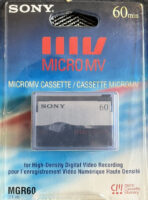Reviewing a video game is a great way to share your knowledge or passion for a certain title. It can be fun and useful, because your evaluation of the game can help your reader decide whether they’ll spend time and money on it, too.
1.
You are going to need to know as much as you can about the video game you are reviewing. Yes, playing the video game for hours and hours over several days is part of it. You can also ask for information from the game designer, manufacturer or marketing agency.
2.
Know more about the video game than will fit into the review; prepare your rough notes and be ready to cut them down to size. Some short reviews are only 150-300 words, while more in-depth feature reviews can be 500-1,000 words, depending on where they’re published.
3.
Always keep your audience and reader in mind. The more you know about how they are and why they are reading your video game review, the better you’ll be at meeting their needs. Mostly, they want to know if they should buy the video game, and if so why?
4.
You can share your opinion, and be critical or complimentary, but be prepared to back it up. Cite specific examples from the video game you are reviewing. Talk about the experience you had playing the game, and keep in mind how other people might react.
5.
Share some basic facts about the video game you are reviewing by telling the reader its name, number of players, the platform or device it runs on (PC; console, online, Smartphone) and type or version (Wii, PlayStation, iPhone 4, etc). If it’s a computer game, talk about minimum or recommended system specs. The price of the video game will appear somewhere in your review.
6.
Briefly describe the objective of the game and how it’s played. Are you trying to blow up aliens, win a car race, solve a word puzzle or learn to dance? Talk a bit about difficulty levels, and describe the use of game controls.
7.
Good video game reviews will describe the sound and graphics, and talk about how the visuals and the sound effects are used in the overall gaming experience. When you talk about the animation, and the overall impact of the pictures, see if you can include a screen capture or cover graphic to help make your point.
8.
The audio quality and use of sound effects can be very important, too. How does the audio contribute to the fun of playing the video game? Are the sounds authentic? Describe for your reader any special impact the audio has.
9.
Your opinion about how well the game holds up after lots and lots of play can be valuable for your reader. Do you think it’s challenging or appealing enough to last? Talk about any expansion products or companion games that can add value and longevity in your video game review.
10.
Finish up your video game review by restating some of the key pluses or minuses you have already identified. Give your best opinion of how cool – or not – the game is to play. Would you buy it? Should your reader?
EXTRA ADVICE
· Always play the game thoroughly, and through all its levels before you review it.
· Read other reviews, get inspired and judge what works and what doesn’t so you can apply the lessons to your own video game review.
· Spoiler alert! Don’t give away any real secrets in your video game review.
· Comparisons can be useful when reviewing a video game, just make sure the other titles are popular and well-known.






Recent Comments